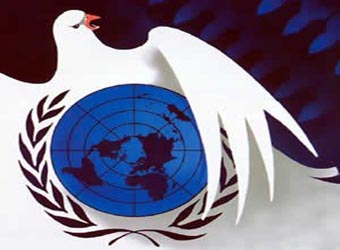In a major move to improve the human rights record of the Gulf states, senior officials of the six-nation Gulf Cooperation Council (GCC) reviewed the draft charter of the GCC Human Rights panel in Riyadh yesterday.
“This was the third meeting of the human rights bodies of the Gulf governments to discuss and decide measures to audit human rights records across the Gulf and to unify their positions,” said Ahmed Al-Kabi, a GCC spokesman.
Al-Kabi said the meeting discussed how to develop a common understanding of human rights and unify measures as well as legislation in the GCC states. The meeting also discussed strategies based on lessons learned from other countries toward the effective incorporation of human rights measures, said the GCC spokesman, adding the officials identified priorities for human rights.
“The focus was also to promote regional cooperation in the area of human rights among relevant partners including governments, national institutions, academic institutions and NGOs,” said Al-Kabi. He said GCC human rights officials would work out a new mechanism to protect the human rights of Gulf citizens and ensure more protection to the growing number of migrant workers.
Asked about the major topics discussed yesterday, Al-Kabi said: “The meeting dealt with discussions on proposals submitted by the GCC General Secretariat on means of promoting coordination between government agencies concerned with human rights in the Gulf.”
The meeting stressed the need to promote exchange of visits of human rights delegations among member states with a view to discuss major issues and unify legislation in this field.
On the other hand, the GCC officials reviewed the issue of participation of the GCC General Secretariat (GCC’s Office of Human Rights) in the events, seminars and conferences that will be held in the Gulf countries as well as in other nations of the region. Other key issues taken up by the officials for discussions were the subject of training of officials in the field of human rights, in addition to creating the GCC’s own website on human rights.
The meeting also focused on the latest developments in the field of human rights following the GCC plan to make its human rights panel a strong and more vigilant one. “The move to set up this regional panel was first announced in 2010,” said Al-Kabi, adding the GCC human rights body will exert all efforts to ensure the accurate auditing of human rights records in the region.
Renewed efforts are exerted by the GCC as a bloc because member states have often complained that reports issued by some international organizations do not reflect reality and ignore their achievements in the field of human rights. The GCC states are home to an estimated 25 million foreign workers. Reports consistently cite ongoing practices of unlawful confiscation of workers’ passports, withholding of wages and exploitation by recruitment agencies and employers.
However, substantial achievements have also been made by the GCC on all fronts that are largely ignored by international agencies and press, said Al-Kabi. While praising a positive trend by some GCC countries to abolish or reconsider the sponsorship system, another GCC official said Gulf states have been trying to better balance rights and duties of their nationals as well as foreign workers.


